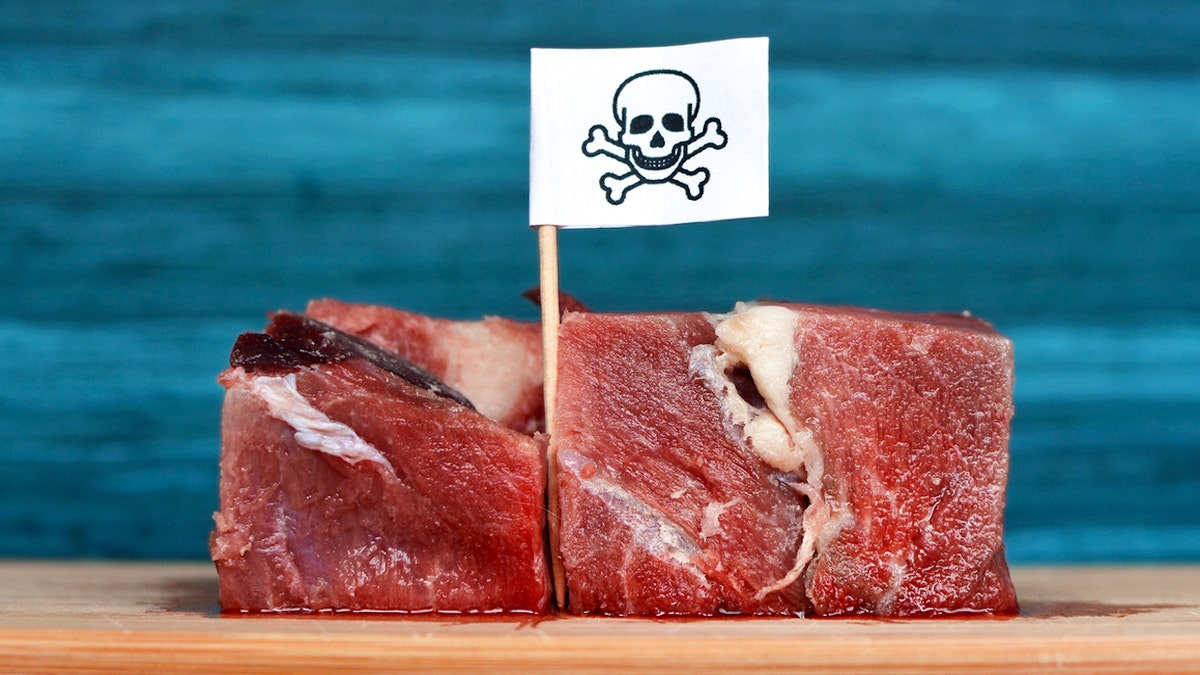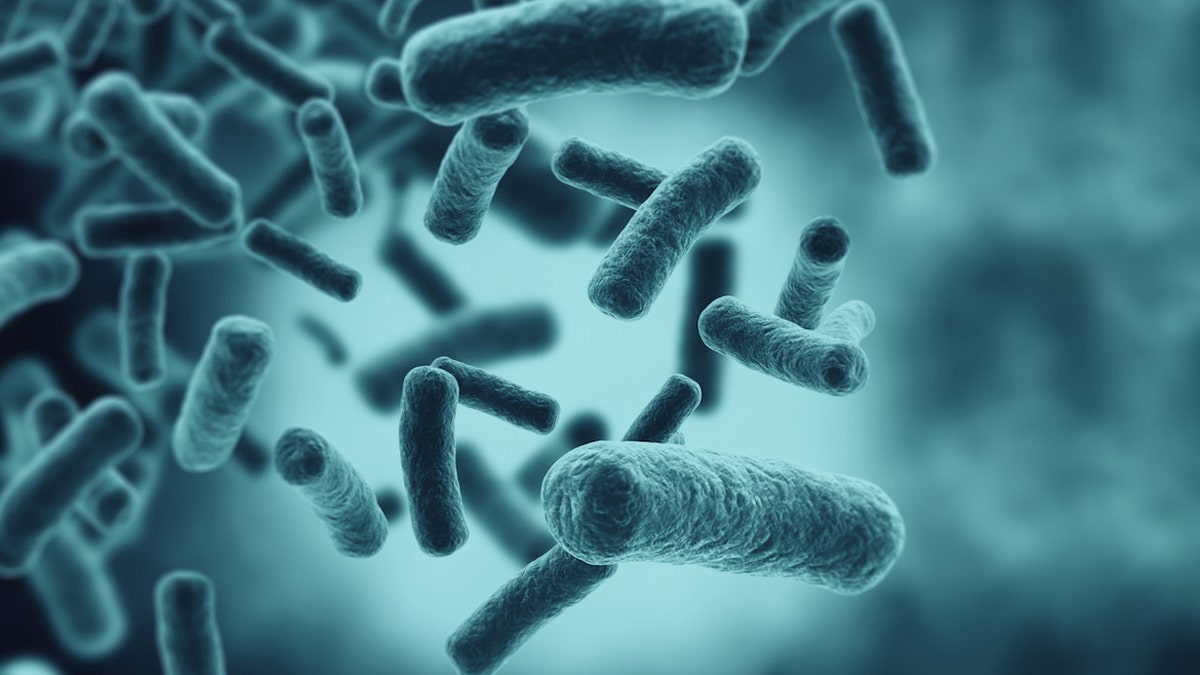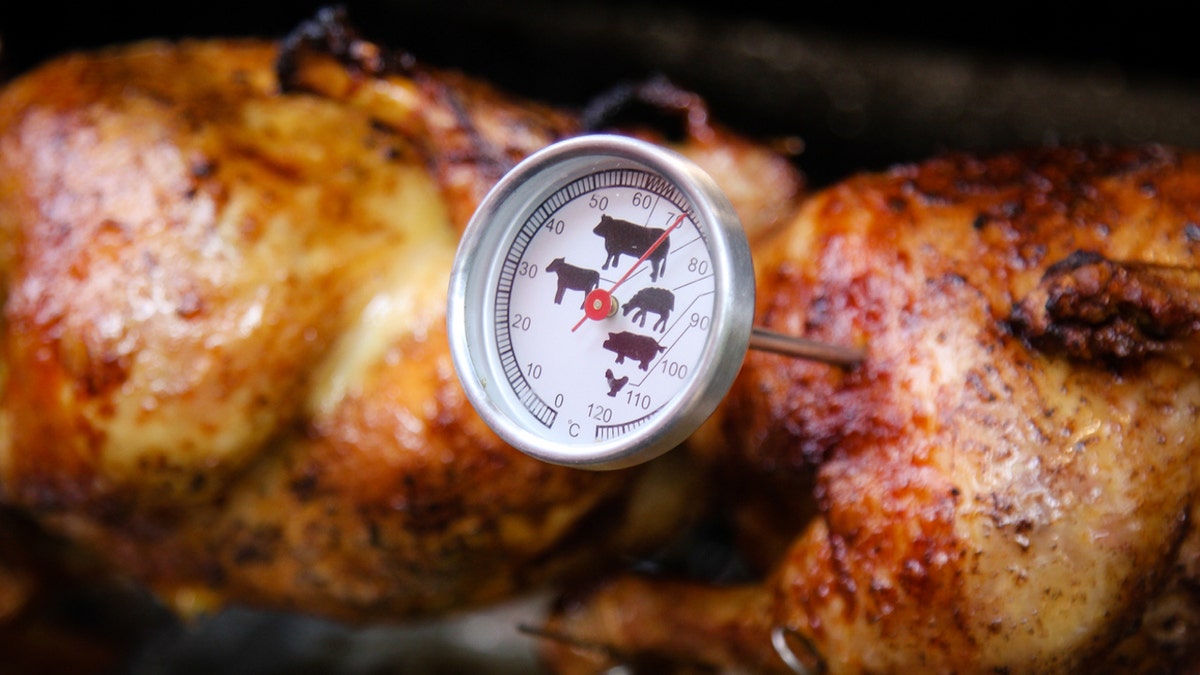Fox News Flash top headlines for March 23
Fox News Flash top headlines are here. Check out what's clicking on Foxnews.com.
Contaminated meat could be the culprit behind nearly half a million urinary tract infections (UTIs) in the U.S. each year, a new study published in the journal One Health found.
UTIs are caused by a bacteria called Escherichia coli (E. coli), which is found in the gastrointestinal tract.
Researchers from several universities — including George Washington University, University of Michigan and Northern Arizona University — analyzed 1,923 raw chicken, pork and turkey samples from nine major grocery stores in Flagstaff, Arizona over a 12-month period.
Next, they looked at 1,188 urine and blood samples from Flagstaff Medical Center from the same time frame.
Through genetic testing, the researchers found that around 8% of all E.coli cases (primarily UTIs) came from the consumption of food products.
On a national level, considering that six to eight million UTIs are diagnosed in the U.S. annually, that would equate to 480,000 to 640,000 cases coming from contaminated food.

Out of the six to eight million UTIs diagnosed in the U.S. annually, 480,000 to 640,000 of them could come from contaminated food, the study found. (iStock)
"The biggest takeaway is that meat in the U.S. is serving as a vehicle for E. coli that is causing urinary tract infections," lead researcher Lance B. Price, PhD, professor of environmental and occupational health at George Washington University in Washington, D.C., told Fox News Digital via email.
UTIs: What to know
Some 10 out of every 25 women and three out of every 25 men will contract a urinary tract infection at some point, according to the Urology Care Foundation.
'SILENT PANDEMIC' WARNING FROM WHO: BACTERIA KILLING TOO MANY PEOPLE DUE TO ANTIMICROBIAL RESISTANCE
Common signs include cloudy or foul-smelling urine, pain or burning on urination, abdominal pressure and a persistent urge to urinate.
UTIs do not typically cause serious outcomes, but in rare cases, they can lead to kidney infections. Most cases can be treated with antibiotics.
How E. coli spreads
E. coli is a bacterium that is often found in the guts of animals as well as humans, said Trevor Craig, food safety expert and corporate director of technical training and consulting at Microbac Laboratories in Pittsburgh, Pennsylvania.
Craig was not involved in this research.

E. coli is a bacterium that is often found in the guts of animals and humans. Some species, however, can "cause serious human illness," said one food safety expert. (iStock)
"They play an important part in a normal microbiome, but some specific species of E. coli can cause serious human illness," he told Fox News Digital via email.
"In most cases, these illnesses are marked by cramps, diarrhea and vomiting, but in rare cases they can lead to organ damage."
AS CONTAMINATED BEEF IS RECALLED, A REMINDER TO CLEAN OUT REFRIGERATORS TO KEEP THE FAMILY SAFE
E. coli typically spreads through unclean products and environments, he said. In some cases, however, the gut parts of animals can contaminate the other parts that humans consume.
"This is normally taken care of by cooking, but if a product is contaminated and undercooked, it can provide an environment where E. coli can survive and then infect the human gut," he explained.
"If a product is contaminated and undercooked, it can provide an environment where E. coli can survive and then infect the human gut."
"While E. coli has long been associated with meat, especially minced meat like beef, it is now commonly associated with contamination and recalls in lots of products like produce, leafy greens, dairy and nut butters," Craig added.
The role of antibiotics
Matthew Wellington, the Portland, Maine-based public health campaigns director for the U.S. Public Interest Research Group (PIRG), points out that antibiotics used during meat production can heighten the risk of foodborne bacterial infections. (He was not involved in this study.)
REUSABLE WATER BOTTLES CONTAIN MORE BACTERIA THAN TOILET SEATS DO, SAYS STUDY
"It's common for conventional meat producers to routinely use medically important antibiotics to compensate for industrial farming conditions," he told Fox News Digital.
"That overuse breeds drug-resistant bacteria that can spread [from] farms and sicken people with dangerous illness."
It's critical to reduce antibiotic use in meat production, Wellington believes, to help keep these drugs effective for treating many different types of health threats.

Approximately 10 out of every 25 women and three out of every 25 men will contract a urinary tract infection (UTI) at some point, according to the Urology Care Foundation. (iStock)
"While the foodborne E. coli strains were less concerning than the other E. coli populations studied when it came to antibiotic resistance, the study authors nonetheless found that the foodborne strains exhibited a ‘substantial prevalence of resistance’ to antibiotics used in human medicine, including some that are commonly used to treat E. coli infections," he said.
"Some of the most dangerous strains to people also cause infections in animals."
That means people who contract one of these resistant strains of E. coli could find that typical antibiotic treatments fail to kill the infection.
Findings could inspire prevention
The knowledge coming out of the study could help reduce the incidence of these infections, said study author Dr. Price.
"For example, we could vaccinate animals against the most dangerous strains," he said. "This would be a win-win for food animal producers and public health because some of the most dangerous strains to people also cause infections in animals."
Food safety protocol is key
The Centers for Disease Control and Prevention (CDC) has outlined steps for food safety to prevent E.coli contamination.
LEFTOVER FOOD SAFETY: WHAT TO KNOW
First, be sure to wash hands, surfaces and cooking tools often during food preparation.
All produce should be rinsed under running water.
While preparing food, it’s important to keep raw meat, seafood, poultry and eggs separate from other foods to avoid cross-contamination.

Cooking food thoroughly is key to killing bacteria and ensuring safe consumption. (iStock)
Thoroughly cook food to ensure safety. Use a food thermometer to ensure that the temperature is high enough to kill any bacteria.
The CDC lists the appropriate cooking temperatures for different types of food.
All food should be promptly refrigerated. The "danger zone" — which is when bacteria multiply fastest — is between 40°F and 140°F, according to the CDC.
Researcher calls out limitations
The lead researcher of the study believes that its biggest limitation — the fact that it was conducted in one small, geographically isolated city (Flagstaff, Arizona) — is also one of its strengths.
CLICK HERE TO SIGN UP FOR OUR HEALTH NEWSLETTER
Because they focused on a singular location, Dr. Price said the research team was able to sample most of the infections and all major brands of meat in the city over the course of a year.
CLICK HERE TO GET THE FOX NEWS APP
"We'll have to study more cities to see if the findings are generalizable," he said.
"I suspect that they are, since most meat products are produced in a few agricultural regions and shipped all over the country."











































